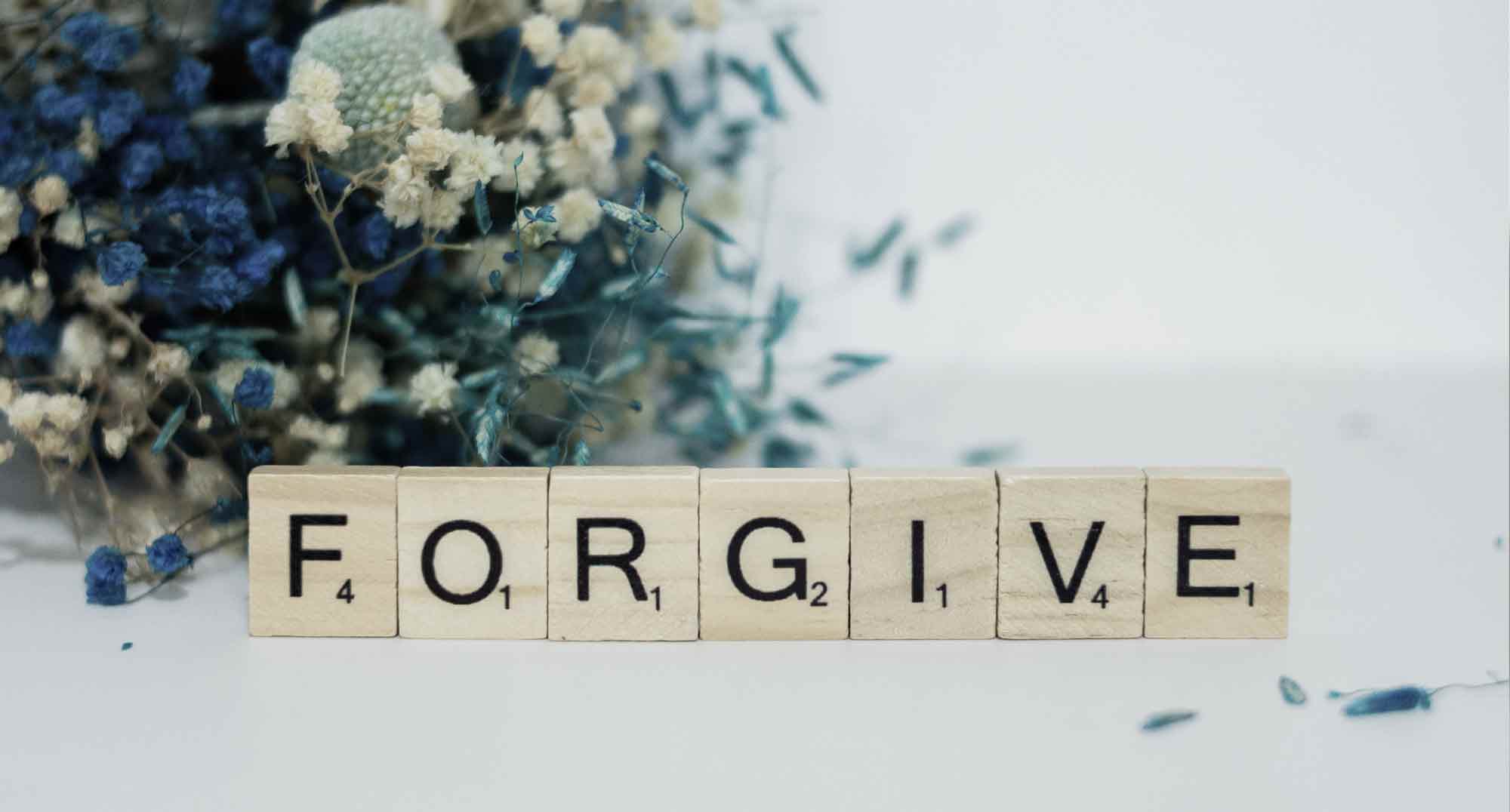LEAH JONES | GUEST
“Birds fly. Fish swim. Christians forgive.” My husband made this statement in a sermon on forgiveness a few weeks ago and it resonated with me. With all the authority and confidence that could only be rooted in Scripture, he proceeded to explain how forgiveness is as necessary to the Christian as breathing.
If forgiveness is free, good, and necessary, then we should be quick to forgive. There should be no withholding it. In The Miracle of Forgiveness, C.S. Lewis speaks of forgiveness as mortifying our resentment. It’s a practice we have to set on repeat. In fact, we may have to walk the same path of forgiveness 490 times (see Matt. 18-21). Forgiveness is a journey with many steps along the way—so we may as well get started.
As I’ve studied and meditated on forgiveness, here are four things I’ve learned:
1. Forgiveness is Mandatory
We must forgive. It is never optional. A lack of forgiveness settles in and festers. Bitterness takes root and anger turns to rage; hurt morphs into hatred. We begin to only see the difficulty in life and miss God’s goodness. Hebrews warns us to remember the grace of God, “lest the root of bitterness rise up” and cause great destruction (Heb. 12:15). These ramifications never stay isolated to one relationship. They creep in unnoticed and wreak havoc throughout our relational landscape.
While an essential act of obedience, forgiveness isn’t natural. It takes intentional mental work and consistent dependence upon the Holy Spirit. Unforgiveness leads down a dark path to anger, frustration, bitterness, resentment, and more. Forgiveness not only frees the offender, it also frees us from holding on to things that will only cause us more pain.
During seasons when I experience an abundance of anger, whether just or unjust, it helps me to think of ways to express my own gratitude. Henri Nouwen wrote very comforting words in The Return of the Prodigal Son, “Acts of gratitude make one grateful because, step by step, they reveal that all is grace.” For all we have been given, gratitude should be the easiest of disciplines. However, our finite hearts demand a great deal of practice. Thankfully, our relationships afford us a fertile practice ground.
2. Forgiveness is Immediate but Emotions Linger
The supernatural act of forgiveness is immediate and complete. However, our finitude gives space for our emotions to linger. In order to forgive, we first have to experience the pain of how we have been wronged. Engaging with negative emotion demands mental, emotional, and possibly physical energy. We have to acknowledge someone we love has not cared for us the way we deserve.
Forgiveness doesn’t mean denying the presence of hurt. It doesn’t deny how wrong has been done and hurt has been felt. Rather, it acknowledges the need for forgiveness along with all the corresponding emotions it produces. When a wrong has been committed, hurt is felt deeply. Our tears fall as prayers are lifted up to the Lord in desperation for relief.
Forgiveness becomes more meaningful when we realize these emotions exist in part as God-given indicators of hurt. Even when forgiveness is granted, the emotions will likely linger. Jesus has experienced the deepest pain of the most horrific betrayal. He sits with us as we experience deep sorrow having already put to death all our sin and shame. This is why forgiveness is a journey where we remind ourselves (as we experience our emotions) that the record of wrong has been erased.
3. I’m Blessed When I Forgive
If forgiveness is commanded, then it is always beneficial for the forgiver. When the command to forgive seems too costly, all we need to do is to look at Jesus and the price he paid for the forgiveness of our sins against him. Even when forgiveness is met with indifference or dismissed as unnecessary by the one who hurt us, it still brings value to the obedient heart of the forgiver.
The well of grace provided by the cross is limitless. There is blessing in the act of drawing on the mercy given to us and relating through it to those we love. It is a privilege to follow the example of Jesus and walk in mercy. How beautiful it is to be so filled with mercy that we can walk through life as if unaware of when we’ve been wronged! The grace we’ve been given affords a tremendous bandwidth of mercy for others.
Drawing from the deep well of the forgiveness offered to us in Jesus opens us to deeper communion with him. We call on his help with a heart of humility. We seek obedience with humble pliability. We love the Lord and others more fiercely.
4. Forgiveness Steals My Power
We can let go of defensive demands to be heard. In instances when we find ourselves speaking into a vacuum of dismissive disregard, leaving us feeling powerless, we can rest in the power of the risen Christ. The world tells us to be self-protective, to maintain our power, and demand we have a voice (which we do). In contrast, Jesus kept Judas in the inner circle, wandered the desert for forty days and drew names in the sand with silence.
The world has a point! As image bearers, we should always have a voice to express what we feel. As believers, we live every day in light of the power given to us through the redemptive work of the cross. We don’t have to fight to be heard because Jesus has won the only fight that truly matters.
With forgiveness always at our disposal, we can draw from it continuously and never run out. We don’t even have to hear the wrong acknowledged by the offending party. We can forgive without understanding motives, specifics, or timing. We can freely cover disrupted relationships with a blanket of forgiveness out of the fruition of abiding in Christ’s love. The cross only requires one to forgive, regardless of acceptance of guilt or acknowledgement of the wrong.
When we struggle to forgive, there’s good news! The only resource we need to accomplish the task of forgiveness is always at our fingertips. Our loving Savior resides in our hearts, spurring us on and showing us more of His beauty along the way. The forgiveness he has given to us is a bottomless well of daily mercy. It flows through our hearts as we draw from it to bestow on others.
Through Christ, let us be Christians who forgive.
Photo by Alex Shute on Unsplash

Leah Jones
Leah attended college in southern California where she secured her bachelor’s degree in counseling and met her husband Andy. Recently, she completed a master’s degree in counseling and served as a substance abuse counselor until starting Front Porch Circle.
Leah started Front Porch Circle to connect her experience as a counselor with the realities facing pastors’ wives. She understands from personal experience the unique issues they face and wants to provide them a safe and structured environment to grow.
The experience of being a pastor’s wife to a phenomenal congregation afforded Leah the experience of isolation in the middle of loving and intentional parishioners. This insight has given her the desire to serve other pastors’ wives by providing them confidential opportunities for support. Learn more about Leah and her ministry at frontporchcircle.com. Leah attends Rock Creek Fellowship in Rising Fawn GA.

